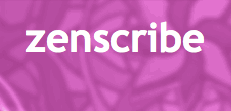The other day, a fellow journalist remarked to me that my « talents » were being « wasted » because I was required to edit a text that consisted of little items about famous « people, » the kind of celebrity news that is consumed like popcorn or chocolate or potato chips.
I replied that it was indeed possible to see the situation that way: My skill and experience as a veteran journalist being applied to such trivia! What a waste!
I added, however, that it was also possible to say that I in fact put my talents to use elsewhere. He agreed that this was true, as he knows I teach Zen and am a poet.
And yet, I added, the truth is that my « talents » can never be « wasted » if I apply them to whatever I am doing at every moment. My « talents » are best used when I use them without discrimination wherever they are needed.













defining ethical !!! – ???
not a thing is always right or always wrong. We can hide behind everything. Behind the conditionaly ethical – or non-ethical – things just are –
everything has to be there – it is perfect as it is – i can say
– although i meet my devils in different faces…
could i put: there is no coïncidense? Not meaning we have to "undergo" faith…
So in the matter of the job: what is really the essence?
deeper then the story?
I don’t know about that.
the relative includes good and bad. So it is an issue – i think.
i think there is nothing wrong with ethics.
But i think we often hide behind them too – when we have no insight in ourself and in the other – in the situation.
when we have insight in the moment – we just handle – no head between.
The " don’t do to another what you don’t want the other to do to you " is of the same order i guess. There has to be insight. Real seeing what is there.
for ex. When i want to be conected – and my collegue wants to distinguish herself on top of other people the whole time – it could be rather complicated…
Every religion (in fact every philosophical system or worldview) has its ethics, and Buddhism is no exception. But when I said “the ethical way”, I was thinking specifically in Kant’s “Act only according to that maxim whereby you can, at the same time, will that it should become a universal law”
(- didn’t realize at the time that even in the West there is at least one strong alternative to this, the utilitarian ethics).
When you speak out, instead of simply turn away (i.e. ignore, doing as you’re told, quit the job…) you act in behalf of all future men and women who might, in the future, be faced with that unfair situation, or somehow be ill-treated at work.
I guess that, from a Buddhist point of view, this doesn’t make much sense. (As it was said, “the ‘best’ answer is always a live response to a live situation”).
And yet, there seems to be little difference between Kant’s categorical imperative and the so-called “Golden rule”, which can be found in most religious systems: “One should treat others as one would like others to treat oneself” or “one should not treat others in ways that one would not like to be treated.”
Kant’s categorical imperative is absolute and abstract (i.e. based in principles). But the “ethical” dilemma I was describing is not abstract. It is unfortunately rather concrete for it affects a person who’s very dear to me.
But you are right. The issue under discussion here was not an “ethical” one:
our "talents" can never be "wasted" if we apply them to whatever we’re doing at every moment.
It is a heritance of our western, Christian way of thinking (our in-famous Protestant ethics) that makes us always value work, or tasks, or everyday jobs, in terms of sacrifice and humility (and therefore to imagine an intrinsic “ethical” quality in them). In Zen, I would dare to say, we just do our jobs.
We try to establish mindfulness in our day-to-day life, but without thinking if that’s right or wrong, good or bad.
Perhaps begin by defining "ethical."
you mean ethics come from thinking mind?
in such a situation i ask myself: what is irritating me? Why? What can i learn from this?
But it will not depend on being ethical???
As usual, the answer is, "It depends." That is, there is no set reply. The "best" answer is always a live response to a live situation. Sometimes that may mean speaking up. Sometimes not. Sometimes it might mean doing the job the "wrong" way. Sometimes not. Sometimes losing a job is not a loss. Sometimes a loss is not a loss, and a gain is not a gain… but anyway…
If we come to the situation free of our fixed notions about right and wrong, best and worst, etc., then we have a chance to respond freely, openly, with action in accord with the circumstances, with life.
That’s what I mean by "best" use of talent. I have no idea what that "best" use entails, but it will not depend on being "noble" or "fair" or "ethical."
This sounds fair (and noble) but what if you work in a place where your “talents” weren’t appreciated at all? A place where you were expected to perform a task the wrong way just because you were ordered to so. End of discussion –
You could do one of three things: to quit that job; to speak out; to perform your task the right way. Whatever your decision, you lose your job.
To speak out would be the “ethical” way (the Kantian way)? to perform your task the right way would be the “zen way”?